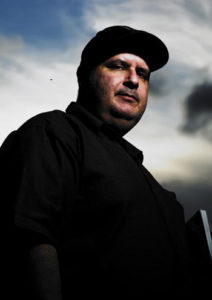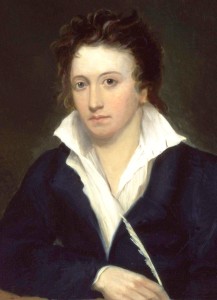Pioneer of Romanticism (and Romantic Satanism1) William Blake famously theorized in The Marriage of Heaven and Hell (1790–93) that the sublime grandeur surrounding Satan in Paradise Lost makes sense given that Milton, as “a true Poet,” was “of the Devils party without knowing it[.]”2 It appears that infernal inspiration lies behind all the arts, as Alex Proyas, the onetime director of the Paradise Lost film, recently revealed that his effort to bring Milton’s masterpiece to the silver screen made him realize his own place in the Devil’s party.
“While attempting to make Milton’s Paradise Lost into a movie,” Proyas wrote in a Facebook post on October 24th,
I had an epiphany of sorts. I’m obviously not the only guy who has had it, but it felt very personal at the time. Can good exist without evil? Further to that, it seems the God of Paradise Lost actually manipulates Lucifer in such a way that his only recourse is to become Satan, and thereby He invents the very notion of evil itself. There was no good before God made it, and therefore no evil either. And that is why Paradise Lost was considered so blasphemous when it was written and continues to be challenging even today. That is one of the reasons why the movie was never made.

Proyas had made a similar comment concerning the real reason for Paradise Lost’s cancelation prior to production via Facebook back in December of 2015, when he was still working on his ill-fated Gods of Egypt (2016) film: “…[T]he [Paradise Lost] project fell over not because the budget was too big (as reported in the media),” Proyas claimed, “but because I really do think the material is just too out there for Hollywood. Let’s not forget Milton himself was branded a heretic for writing it.” In any event, the director’s analysis of Lucifer being forced to become Satan—the heavenly Morningstar compelled to become the hellish Prince of Darkness—was but a more subdued variation on the analysis the Satanic School’s Percy Bysshe Shelley offered in his unpublished Essay on the Devil and Devils (ca. 1819–20).
As far as Shelley could see, because Milton’s Satan possessed an “unconquerable Will” and the “courage never to submit or yield” (I.106, 108), the fallen archangel “was so secure from the assault of any gross or common torments that God was considerably puzzled to invent what he considered an adequate punishment for his rebellion; he exhausted all the varieties of smothering and burning and freezing and cruelly lacerating his external frame, and the Devil laughed at the impotent revenge of his conqueror.” Given how remarkably undaunted Milton’s Satan remains in the face of his damnation, Shelley explains, Milton’s God resorted to corrupting the fallen angel’s “benevolent and amiable disposition,” the omnipotent tyrant diabolically coercing Satan to corrupt the innocent Adam and Eve, thereby magnifying the intensity of his own suffering:
At last the benevolent and amiable disposition which distinguished his adversary furnished God with the true method of executing an enduring and a terrible vengeance. He turned his good into evil, and, by virtue of his omnipotence, inspired him with such impulses as, in spite of his better nature, irresistibly determined him to act what he most abhorred and to be a minister of those designs and schemes of which he was the chief and the original victim. He is forever tortured with compassion and affection for those whom he betrays and ruins; he is racked by a vain abhorrence for the desolation of which he is the instrument; he is like a man compelled by a tyrant to set fire to his own possession, and to appear as the witness against and the accuser of his dearest friends and most intimate connections, and then to be their executioner and to inflict the most subtle protracted torments upon them.…Milton has expressed this view of the subject with the sublimest pathos.3

In his radical reinterpretation of Paradise Lost, Shelley lays the blame for the Fall of Man on God Himself—just as Milton’s Satan does (IV.373, 386–87)—and while this particular apology for Satan appears on the surface of it to overstate the Devil’s case, it ironically has the most textual support. After all, we are reminded early on in Paradise Lost that it is none other than the Almighty who frees Satan from the burning lake of Hell so that “with reiterated crimes he might / Heap on himself damnation” (I.214–15), as well as garner greater glory for God, for Satan’s “spite still serves / His glory to augment” (II.385–86). In Eden, Milton’s Satan sheds tears for the human couple whose ruin he must precipitate in order to avenge himself and his fallen brethren on God and divide the Deity’s Empire by conquering the “new World” (IV.388–92). It appears quite safe to say that the Paradise Lost film was going to be faithful to the spirit of this uniquely sympathetic Satan imagined by Milton.
As I have explained, I became a believer in “the guy from The Hangover” playing Lucifer not only because of Bradley Cooper’s heartfelt love for Paradise Lost but the unabashed passion for Milton’s Satan that the actor expressed, Cooper having openly asserted that he “fell in love with that character because I couldn’t believe how appetising he is in that poem. Satan is the hero.…It’s about the father [God] betraying the [Satan] character.” Regardless of what the other filmmakers had in mind for the presentation of Paradise Lost, that Cooper was clearly going for a Romantic portrayal of Milton’s Satan was to me rather reassuring back in late 2011/early 2012. I am now further impressed—and in turn further disappointed that the film never made it to the production phase—to see that Proyas shared a Romantic vision of the poem and acknowledged that his cinematic version would be just as “blasphemous.” To be fair, during preproduction Proyas had shown that he intended to stay true to the deep ambivalence of Milton’s Satan when he related that “Lucifer was the brightest and smartest of the archangels, and even as he descended into evil and evolved into Satan, he’s not just some black-and-white villain,” which is yet another variation on Shelley: “Nothing can exceed the energy and magnificence of the character of Satan as expressed in Paradise Lost. It is a mistake to suppose that he could ever have been intended for the popular personification of evil.”4
As promising as Proyas’ pitch was a half-decade ago, to now hear from the director that working on Paradise Lost induced a Satanic “epiphany of sorts” is quite a reminder of the power and influence of Milton’s epic poetic treatment of the rebel angel. It’s a shame that the film fell through, and I can only hope that Hollywood will eventually muster the audacity to bring Paradise Lost to the big screen—with Milton’s fallen Morningstar as the Satanic star of the film. Proyas estimates it will take Hollywood another half-century to do so, the diabolical director promising, “I will haunt the cinemas at that time to make sure they’ve done it right.”
Notes
1. See Peter A. Schock, “The Marriage of Heaven and Hell: Blake’s Myth of Satan and Its Cultural Matrix,” ELH, Vol. 60, No. 2 (Summer, 1993), pp. 441–70.↩
2. William Blake, The Marriage of Heaven and Hell, in The Complete Poetry and Prose of William Blake, ed. David V. Erdman, rev. ed. (New York: Anchor Books, [1965] 1988), p. 35; pl. 6.↩
3. Percy Bysshe Shelley, Essay on the Devil and Devils, in Shelley’s Prose: or the Trumpet of a Prophecy, ed. David Lee Clark, pref. Harold Bloom (New York: New Amsterdam Books, 1988), p. 270.↩
4. Percy Bysshe Shelley, A Defence of Poetry (1821), in Shelley’s Poetry and Prose, ed. Donald H. Reiman and Neil Fraistat (New York [2d rev. ed. 1977]: W. W. Norton & Company, Inc., 2002), p. 526.↩